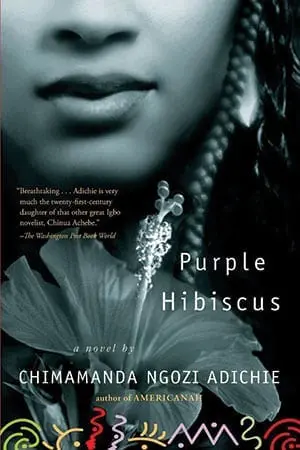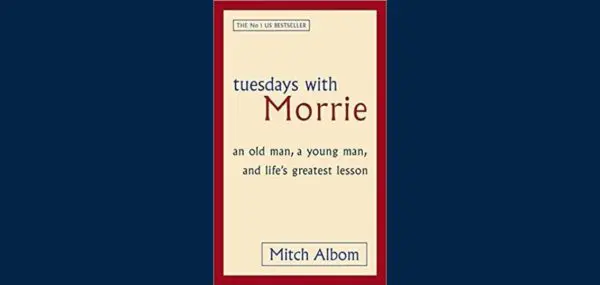TEEN REVIEW | by Emily Fagell
I chose to review Chimamanda Ngozi Adichie’s Purple Hibiscus because I wanted to read it a second time. The book is a glimpse into a very different world from mine, but it also captures what it feels like to be a young teen.
Kambili, the protagonist, is a quiet 15-year-old girl growing up in Enugu, Nigeria. To an outsider, Kambili lives an ideal life with a seemingly perfect family. Her father, Eugene, is a wealthy, religious businessman. He‘s altruistic with those who share his beliefs, and he’s respected in his church community. Kambili’s mother, Beatrice, and brother, Jaja, are kind and loving.
However, Kambili’s life is far from peaceful. Behind closed doors, her father is abusive and short-tempered. In addition to dealing with her unstable family, she must live amidst political unrest during the Nigerian coup. Internally, Kambili is in turmoil, too. She carries the constant fear that she’ll fail to meet her father’s high expectations.
Purple Hibiscus Review
Everything changes when Kambili spends time with her Aunt Ifeoma and her cousins Chima, Obiora, and Amaka in Nsukka, Nigeria. Although Aunt Ifeoma and her family live in poverty, their household is full of affection and joy.
In Nsukka, Kambili must adjust to unfamiliarity. It takes time to let down her guard. When she does break out of her shell, she falls in love, breaks rules she would never dare break in Enugu, and forms lasting friendships. However, Kambili’s world is then dramatically and shockingly upturned again. I’m left wondering how her life will turn out.

Kambili also prompted me to imagine my future. Will it be necessary for me to leave behind everything that’s comfortable and safe to discover my true self? I started high school this fall, and Kambili’s journey is a good reminder that the unknown is full of possibilities. Like her, I may take some wrong turns, but that’s okay.
Purple Hibiscus is set far from my home, and Kambili’s life doesn’t resemble my own, but in the end it doesn’t matter. Teens will identify with her quest to become her own person and figure out what she values.
Emily Fagell, 14, is a ninth grade student at Sidwell Friends School in Washington, D.C.
PARENT REVIEW | By Phyllis L. Fagell, LCPC
I first discovered Chimamanda Ngozi Adichie when I heard her TED talk, “The Danger of a Single Story,” about how limiting it is to define a person by one piece of her identity. As a school counselor, I know how easy it is for people to fall into that trap. Kids are drawn to the familiar, so adults have to find creative ways to move them outside their comfort zone. Literature is a powerful way to bridge differences, so I was glad when Emily suggested we review Purple Hibiscus. It’s set in Nigeria and full of rich descriptions of Enugu’s food, traditions, and landscape.
The main character is Kambili, a 15-year-old girl. Her father, Eugene, is a strict, unforgiving, devout Catholic. He’s a wealthy factory owner who gives generously to his church and community. Unfortunately, he’s also abusive to his family. He publishes a newspaper that criticizes the corrupt government, and political unrest is the backdrop to the story.
Life in Nigeria
Kambili is obedient, achievement-oriented, and eager to keep the peace. Her family’s life is orderly but joyless, and Kambili exists in a state of fear.
She discovers a less oppressive way of being when she spends time with her aunt Ifeoma and her cousins in Nsukka, Nigeria. Her cousins’ family is poor but happy. Nsukka is a big adjustment for Kambili, but she settles into a new rhythm. She falls in love with an unavailable man, a local priest named Father Amadi, and she experiences intense and confusing feelings. After a plot twist involving Eugene, the book ends with an element of uncertainty.
There’s a lot to unpack in Purple Hibiscus. It’s not a light story to digest and covers everything from unhealthy relationships to loss to unrequited love. The story raises questions about coping with the unknown, living with fear, and developing self-awareness. And that’s exactly why I recommend this book. It addresses difficult but universal themes while giving readers a window into the beauty and culture of Nigeria.
Phyllis L. Fagell, LCPC, is the counselor at Sheridan School in Washington, D.C., and the author of Middle School Matters (Da Capo Press, forthcoming 2019). She writes columns on parenting and education for the Washington Post.




